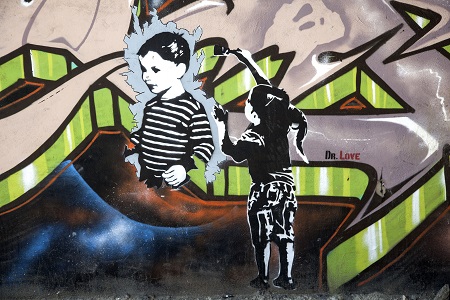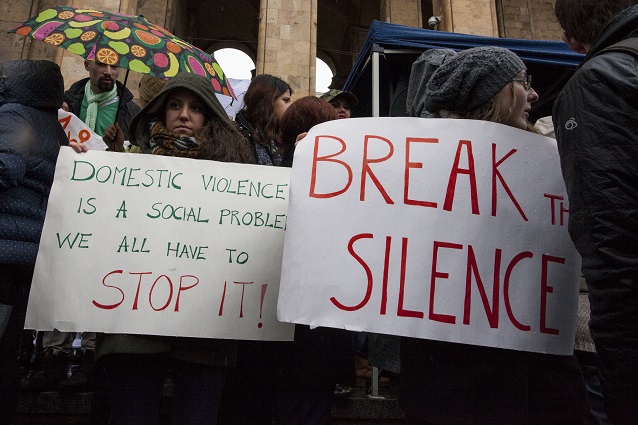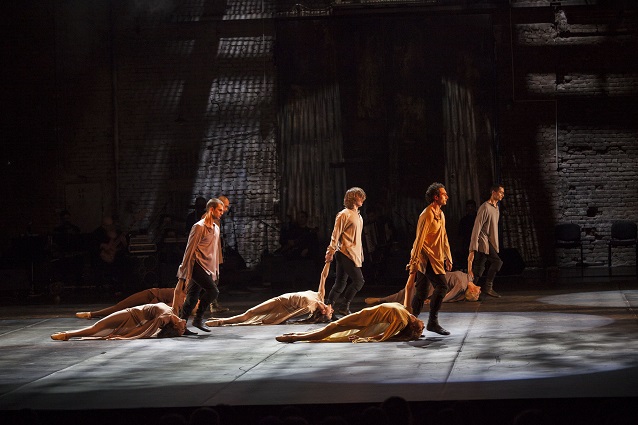Is there gender equality in Georgia?

An independent agency has commissioned a nationwide survey to determine if there is gender equality in Georgia.
Of the almost 4,000 people questioned, two thirds (68 percent) believed there was no gender equality in the country, women were poorly represented in Parliament and having more women in leading roles would have a positive impact on the country.
Results of the October 2014 Public Opinion Poll on Women’s Political Participation in Georgia were released yesterday by USA-based National Democratic Institute for International Affairs (NDI) and revealed the opinions of the community in terms of overall gender equality, acceptance of domestic violence and female participation in leadership and official roles.

Half of the population would be comfortable if a woman was their immediate boss, while only two percent said they would be "very uncomfortable” with this. Photo by N.Alavidze/Agenda.ge
The survey had four main objectives; to assess public attitudes towards women’s participation in politics, barriers for greater participation, gender roles and solutions for increasing women’s participation in politics.
Gender roles
When asked if there was gender equality in Georgia, 64 percent said no, 21 percent said yes, nine percent didn’t know and six percent didn’t know what the question meant.
The results were not as clear-cut when respondents were asked if women and men in Georgia had equal opportunities to succeed in any field; 45 percent said yes, 47 percent said no and eight percent didn’t know.
Just over half of the population would be comfortable if a woman was their immediate boss, while only two percent said they would be "very uncomfortable” with this.
According to some results, men and women had similar views (such as preferred gender of child) but on others, results were significantly different according to gender.

The child in traditional Georgian clothes. Photo by N.Alavidze/Agenda.ge
Seventy-one percent of males believed it would be justified to initiate a divorce if their spouse was unfaithful, but this dropped to 25 percent for female recipients. Similarly, more women (69 percent) believed they would be justified to initiate a divorce if there was physical violence of their spouse, while this dropped to 16 percent for males.
Domestic Violence
The Georgian public had varying attitudes towards physical violence.
More than a third (39 percent) believed physical violence was a matter that should only be resolved within a family while 73 percent believed it acceptable for a court to interfere in cases of physical violence. On a positive note, most people (85 percent) "strongly supported” the idea of strengthening laws against domestic violence.

The rally against domestic violence took place in 23 Georgian cities on November 25. Photo by N.Alavidze/Agenda.ge
When asked whether the situation in Georgia had changed compared to October 2012, about half (53 percent) believed the situation was the same, while a third (32 percent) said it was worse and five percent said it was better.
Women’s Political Participation
Politics played an important role in Georgia’s development but not all citizens showed an interest in politics. Thirty-eight percent said they never discussed politics with their friends and 59 percent said it was "very unlikely” they would ever get involved in political life, such as sign a petition, work at an NGO or participate in a rally.
Males continued to dominate this sphere, and many (53 percent) believed male Georgian politicians did not treat their female colleagues as equals. Only 23 percent believed they did. This could possibly reflect why there were only 17 females of the 150 Members of Parliament, which 55 percent of the population said was "too few”. At the other end of the scale, three percent said 17 women in Parliament were "too many”.

The place were gender equity exists for sure is Georgian dance. Georgian National Ballet's performance "Ramishvilebi".Photo by N.Alavidze/Agenda.ge
In terms of roles in power, men were favoured to hold influential roles. More than half believed Georgia’s president should be male while only four percent believed a woman could do a better job. Similar statistics were revealed for Prime Minister, Mayor, Prosecutor and Judge.
Conclusion
The survey was a national representative sample of the Georgian population, and those behind the survey said it accurately reflected the views of society, with a margin of error of +/- 1.6%.
Not for profit organisation National Democratic Institute (NDI) commissioned the study, conducted by the Caucasus Research Resource Centre Georgia (CRRC-Georgia) with financial backing from the Swedish International Development Cooperation Agency (Sida).
The nationally representative sample of Georgian speakers was conducted from October 10-30 and involved face-to-face interviews of 3,885 people from all over the country, including representative samples of the self-governing cities of Tbilisi, Telavi, Akhaltsikhe, Kutaisi, Zugdidi and Batumi.
See full results of the poll.
 Tweet
Tweet  Share
Share